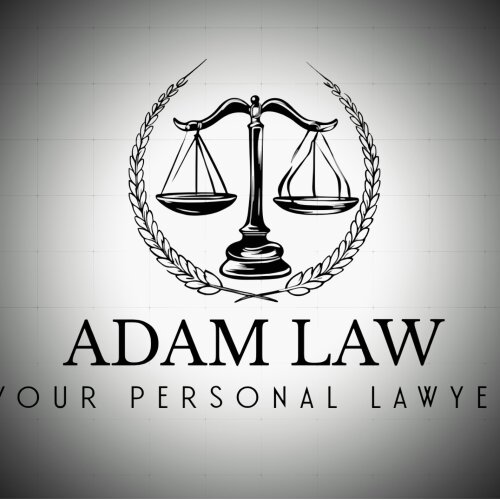
Best Citizenship Lawyers in Stockholm
Share your needs with us, get contacted by law firms.
Free. Takes 2 min.
List of the best lawyers in Stockholm, Sweden

About Citizenship Law in Stockholm, Sweden
Sweden's citizenship laws are generally governed by the Swedish Nationality Act. This law stipulates various pathways by which one can acquire, retain, or lose Swedish citizenship. Specific rules may also apply for those residing in Stockholm, the capital city of Sweden, where international migration is especially prominent. Understanding the intricacies of these laws, particularly within the local context of Stockholm, is vital for anyone looking to secure their citizenship status in Sweden.
Why You May Need a Lawyer
People often require legal assistance in citizenship matters due to the complexity and nuances of the laws involved. Common situations where legal help might be necessary include:
- Applying for Swedish citizenship via naturalisation or descent.
- Dealing with the legal implications of dual citizenship.
- Challenging a decision to revoke citizenship.
- Navigating residency requirements and proving continuous residence.
- Advising on retaining citizenship while moving abroad.
- Assistance with citizenship for children born to foreign nationals in Stockholm.
Local Laws Overview
Key aspects of local laws relevant to citizenship in Stockholm, Sweden include:
- Naturalisation Requirements: Typically, to apply for Swedish citizenship through naturalisation, one must have lived in Sweden for at least five years. The period may be shorter under certain circumstances such as refugees or stateless individuals.
- Residency Proof: Applicants must demonstrate legal and continuous residence in Stockholm, often involving paperwork such as rental agreements, employment contracts, or educational enrolments.
- Language and Cultural Knowledge: While not mandatory, having knowledge of Swedish language and Swedish society can positively affect the application. Some local provisions may offer language courses to meet these needs.
- Dual Citizenship: Sweden permits dual citizenship, allowing individuals to hold Swedish citizenship alongside another nationality. However, conditions for maintaining citizenship status must be closely followed.
- Citizenship by Descent: For children born to Swedish parents abroad or in Stockholm, it's important to register the child's birth and secure their citizenship status.
- Revocation and Renunciation: In certain circumstances, citizenship may be revoked or individuals may choose to renounce their Swedish citizenship. Legal advice is crucial in these sensitive matters.
Frequently Asked Questions
1. Can I hold dual citizenship in Sweden?
Yes, Sweden allows dual citizenship. You can be a citizen of Sweden and another country simultaneously.
2. How long do I need to live in Stockholm to apply for citizenship?
You typically need to have lived in Sweden, including Stockholm, for at least five years. However, this duration can vary based on your specific situation (e.g., refugees may have different requirements).
3. Do I need to know Swedish to become a citizen?
While knowledge of the Swedish language and culture is not strictly mandatory, it can positively impact your application process and integration.
4. What documents do I need for a citizenship application?
You need to provide proof of identity, residency, employment or education records, and sometimes marriage or birth certificates, depending on your situation.
5. How much does it cost to apply for Swedish citizenship?
The application fee is subject to change, but as of recent updates, it may be around SEK 1,500. It's advisable to check the latest fee on the official immigration website.
6. Can my children automatically become Swedish citizens?
Children born to at least one Swedish parent generally acquire Swedish citizenship at birth. If born abroad, their birth needs to be registered with Swedish authorities.
7. What if my application for citizenship is denied?
You have the right to appeal a denied application. A legal advisor can help you understand the reasons for the denial and guide you through the appeals process.
8. Do I need to renounce my original citizenship to become Swedish?
No, you do not need to renounce your existing citizenship. Sweden permits dual citizenship.
9. How long does the citizenship process take?
The processing time varies, but it can take anywhere from several months to over a year. It's a good idea to prepare all necessary documents in advance to prevent delays.
10. Can I expedite the citizenship application process?
There are no guaranteed ways to expedite the process, but providing complete and accurate documentation and meeting all requirements can help avoid unnecessary delays.
Additional Resources
For more information, you can refer to these resources:
- Swedish Migration Agency (Migrationsverket)
- Local Immigration Offices in Stockholm
- Public legal aid services
- Non-profit organizations assisting with immigration and citizenship matters
- Local cultural and language education centers
Next Steps
If you need legal assistance in citizenship matters, follow these steps:
- Identify Your Needs: Clearly define your citizenship-related issues or questions.
- Gather Documents: Collect all relevant documents such as passports, residency permits, employment records, and more.
- Seek Legal Advice: Contact a specialized immigration lawyer or legal advisor in Stockholm. They can provide personalized guidance and represent you if needed.
- Utilize Resources: Make use of governmental and non-profit resources for additional support and information.
Ensuring a clear understanding of your rights and obligations can go a long way in successfully navigating the path to Swedish citizenship.
Lawzana helps you find the best lawyers and law firms in Stockholm through a curated and pre-screened list of qualified legal professionals. Our platform offers rankings and detailed profiles of attorneys and law firms, allowing you to compare based on practice areas, including Citizenship, experience, and client feedback.
Each profile includes a description of the firm's areas of practice, client reviews, team members and partners, year of establishment, spoken languages, office locations, contact information, social media presence, and any published articles or resources. Most firms on our platform speak English and are experienced in both local and international legal matters.
Get a quote from top-rated law firms in Stockholm, Sweden — quickly, securely, and without unnecessary hassle.
Disclaimer:
The information provided on this page is for general informational purposes only and does not constitute legal advice. While we strive to ensure the accuracy and relevance of the content, legal information may change over time, and interpretations of the law can vary. You should always consult with a qualified legal professional for advice specific to your situation.
We disclaim all liability for actions taken or not taken based on the content of this page. If you believe any information is incorrect or outdated, please contact us, and we will review and update it where appropriate.














